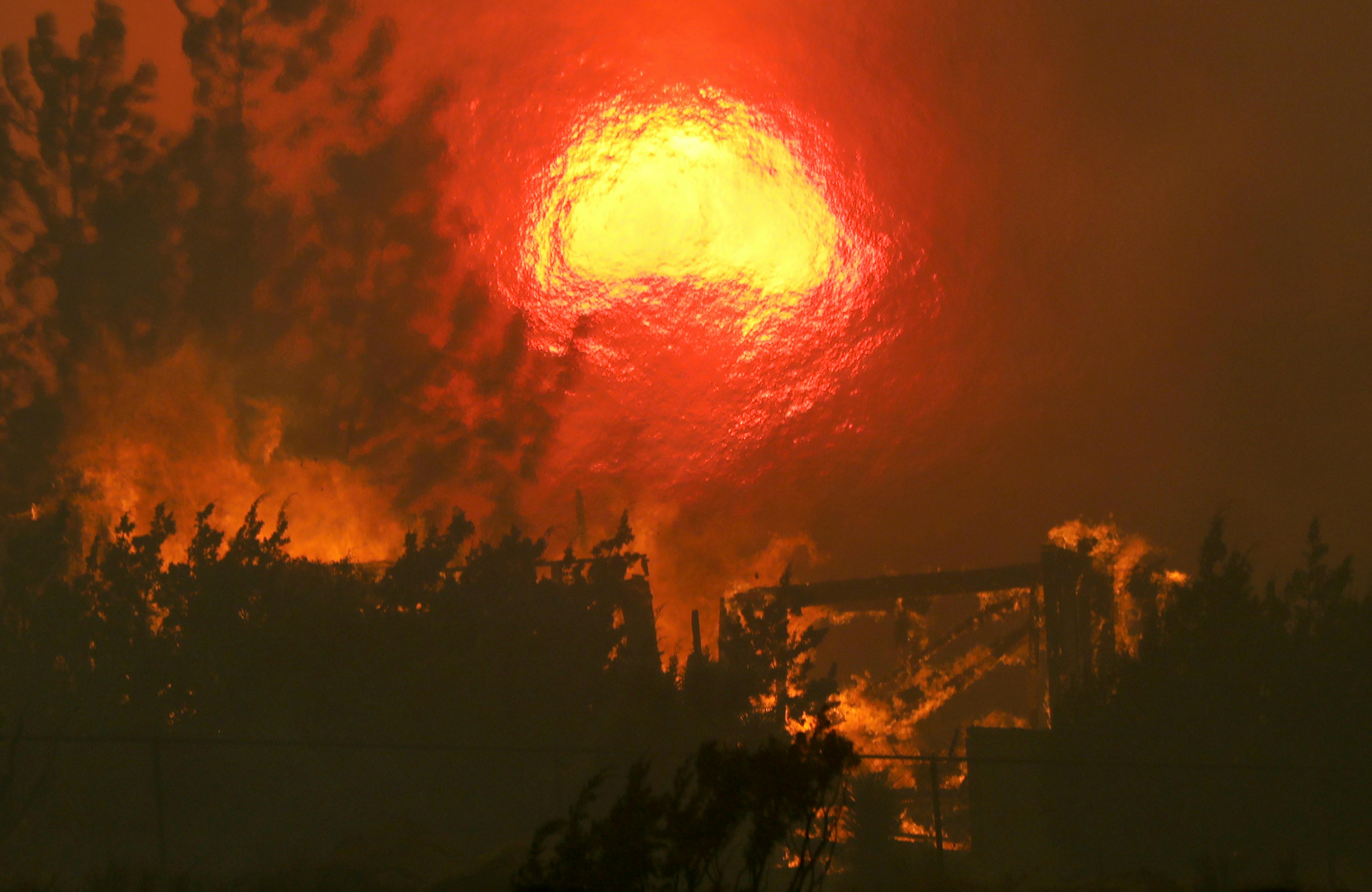|
 Mario Tama/Getty | ||||
| When I look back at 2020, what I’m most struck by is how clearly this year exposed the way crises tend to intersect. It seemed at first an inauspicious time for The New Republic to launch a climate vertical. The top stories on everyone’s minds—the presidential race, the pandemic, the recession, protests against racist police violence—seemed to have little to do with our rapidly warming world. But many of Apocalypse Soon’s pieces this year sat at the crossroads of all of these topics. It’s hard to remember now, but the year opened with catastrophic scenes from Australia. Annette Lin wrote for TNR about the rhetorical shift she was seeing in Australian politics, from outright climate denial to misdirection, as politicians claimed unprecedentedly large bush fires were normal or set by arsonists or anything other than a demonstrable risk of drier summers with higher temperatures. She also offered a warning: “Time and again, those writing on the climate crisis have pointed out a terrible discrepancy in the situation: Those who are more responsible will suffer less, those less wealthy and less powerful will suffer more. As Australia’s fires have shown, that future is already here.”
It would prove to be a theme this year. The 2020 hurricane season would be the most active on record, while the 2020 California wildfire season would burn more acreage than the last three years combined. Kate Aronoff wrote about the cognitive dissonance of politicians’ continuing to greenlight drilling projects as the results of a disastrous “all of the above” energy policy while the sky turned orange on the West Coast. Michael Patrick Welch wrote about the repetitive trauma of life on the Gulf Coast and the casual way the nation has come to accept devastation like that caused to Lake Charles by Hurricane Laura. And Mariette Williams penned a personal essay about living through three hurricanes—and why money made the difference in every single case between evacuating to safety or staying and hoping for the best. The parallels between the climate crisis and the pandemic—not to mention the ways climate change makes such pandemics more likely—were clear even before Covid-19 cases were confirmed in the United States. Inequality and the lack of a social safety net exacerbate the effects of both climate change and pandemics: Universal health care is needed to keep pandemics from spreading, Kate pointed out. Zoonotic diseases that spill over into the human population, wrote Melody Schreiber, are made more likely by food insecurity—plus, if the earth keeps warming, we could soon release new diseases currently frozen in the arctic permafrost. And accepting the reality of a pandemic-changed world, Mary Annaïse Heglar wrote in those early weeks, was a lot like accepting the terrifying and perspective-shifting reality of global warming. The way politicians responded to the pandemic was telling, as Kate identified. Congress and the Federal Reserve moved with more alacrity to relieve oil and airline companies than newly unemployed individuals. That’s despite the growing body of evidence that the fossil fuel industry, even without the pandemic, was starting to buckle beneath the weight of its own questionable economic viability. The Trump administration moved to protect meat production and processing, as Geoff Dembicki wrote, despite the emissions-heavy, abuse-ridden, and worker-endangering industries being hotspots for Covid-19 transmission. And similarly, the way people responded to the pandemic illustrated some of the complexities of consumer culture and American individualism, with lessons for sustainability. Libby Watson tackled this subject while considering the early pandemic panic-buying of heirloom beans. “A just transition to a greener world will mean proportionately more disruption to the better-off; globally speaking, this means middle-class Americans, too,” she wrote. “A silver lining of this crisis would be if the upper-middle class of this country whose peacetime lives are filled with mindless consumption could learn to live a little more simply.”
Instead, as Eleanor Cummins observed a few months later, many affluent Americans reacted to the stress of the pandemic the way our current consumer culture has primed them to—by buying things. “In lieu of a functioning health care system for all, individuals with cash to burn have long since stocked up on jade eggs and facial rollers. Faced with a burning world, we’ve created comforting regimens out of face creams and moisturizing serums,” she wrote. Accordingly, “When the coronavirus struck, those who could afford it quickly doubled down on self-care and self-isolation”—whether that meant streaming subscriptions, sourdough accessories, kettlebells (which promptly sold out), or dubious “immune-boosting” products. “Implicit in many of our most desirable commercial goods,” Eleanor wrote, “and in extreme cases explicit, is the promise that whatever happens to the Earth, its most optimized inhabitants can continue to thrive.” Bleak stuff but with a lesson. The alternative, Eleanor wrote, was to learn from the summer’s racial justice protests, which approached a collective problem collectively rather than individualistically (as wellness and consumer culture encourages us to). The summer’s protests highlighted the many ways climate activism can intersect with social justice and penal reform. Kate also noted that defunding the police was simply good climate policy and reported on activists’ proposal to turn Rikers Island prison complex, scheduled for shutdown, into a solar farm, providing both jobs and better environmental health for communities that have been poisoned and imprisoned for decades:
All these intersecting crises made 2020 a complicated year for mental health, and Apocalypse Soon published multiple pieces tackling the question of how to function productively and work for change amid the steady thrum of disaster. “Doomscrolling,” or devouring an endless array of bad news, can get out of hand, novelist Lydia Millet argued: Spectatorship, even for the purpose of staying informed, has its dangers, particularly when it encourages passivity. Sometimes the most important thing is to switch off the screen and re-engage with the world around us. As part of an ongoing Apocalypse Soon series on climate anxiety, Abigail Higgins argued powerfully that climate grief as understood by the affluent is, in essence, nostalgia for a sense of stability (and a baseline assumption that home will always be there) that the rest of the world never had. And Mary Annaïse Heglar returned to the vertical with an essay that offered, for my money, the single best line of the 2020 election: "I’ll take a shot in hell over a shot to the head any day." This isn’t an exhaustive recap of the entire year on Apocalypse Soon. The vertical has also leaned into its science and public health side, with Melody Schreiber writing regularly about the latest research on the coronavirus transmission, the vaccine race and rollout, what it would take to reopen schools, and more. And some of the most peppery pieces this year have been about mainstream culture’s unavoidable reckoning with the ethics of meat-eating: Alicia Kennedy on food journalism’s relative silence on the matter, Jan Dutkiewicz on climate activists who turn away from the topic, and Jan and Gabriel Rosenberg, most provocatively, on how meat production’s reliance on artificial insemination runs afoul of both the letter and the spirit of anti-bestiality laws. 2021 will have its challenges. To close the year off, TNR has been running a lengthy series called “Unbreaking America” about what it will take to get the country on a sustainable path—from a political, legal, environmental, and social perspective. Apocalypse Soon will be ramping up its coverage of the incoming Biden administration and the 117th United States Congress and the policies and strategies most likely to make a difference on climate change. Expect more personal essays and wild feature stories, too. Thanks for sticking with us through this tough year. As a parting note of optimism: The National Oceanic and Atmospheric Administration on Tuesday confirmed a right whale calf sighting off the coast of Georgia—the fourth recorded birth this season for a critically endangered species. —Heather Souvaine Horn, deputy editor | ||||
| Advertising  | ||||
 | ||||
| Support Independent, Issue-Driven Journalism | ||||
| | ||||
| Copyright © 2020, The New Republic, All rights reserved. | ||||

